Table of Contents
Browse in the Library:
| Artist or Composer / Score name | Cover | List of Contents |
|---|---|---|
| (500) Days Of Summer Piano Theme ( Mychael Danna, Rob Simonsen) | (500) Days Of Summer Piano Theme ( Mychael Danna, Rob Simonsen) | |
| 10,000 Maniacs Because The Night Piano Solo sheet music |
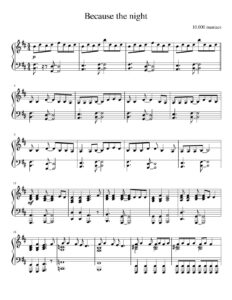 |
|
| 100 Golden Standards The World’s Best Piano Arrangements by the greatest pianists of the Century |
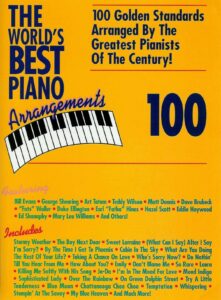 |
The World’s Best Piano Arrangements |
| 100 Great Keyboard Intros Songbook |
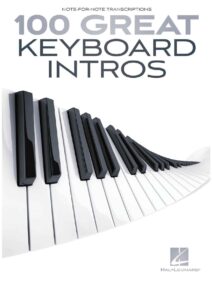 |
100 Great Keyboard Intros Songbook |
| 100 Greatest Film Scores (Book) by Matt Lawson & Laurence E. MacDonald |
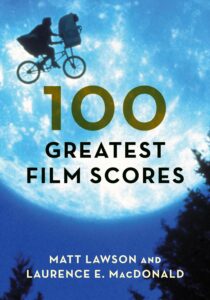 |
|
| 100 greatest POP songs |
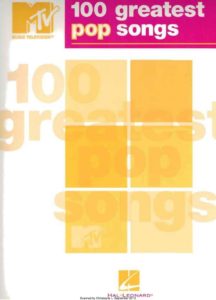 |
100 greats pop songs |
| 100 Greatest Songs of Rock & Roll, Selections From Piano Vocal Guitar Sheet Music |
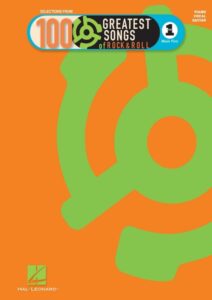 |
100 Greatest Songs of Rock & Roll, Selections From Piano Vocal Guitar Sheet Music |
| 100 Hits Simply The Best – Guitar (Die besten Songs aus Pop Rock) German |
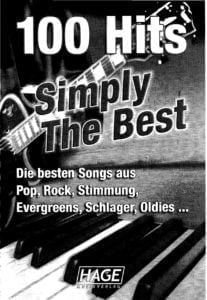 |
100 Hits Simply The Best (Die besten Songs aus Pop |
| 100 Jazz & Blues Greats Book |
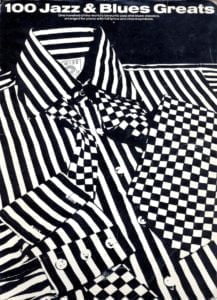 |
100 Jazz & Blues Greats |
| 100 Jazz Solos & Etudes by Jacob Wise |
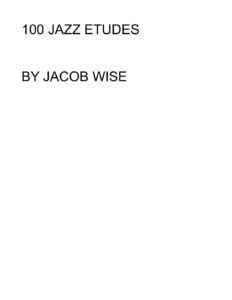 |
100 Jazz solos |
| 100 Light Classics For Piano Solo |
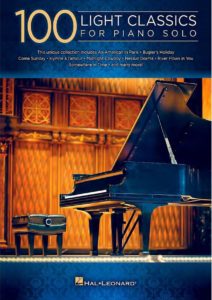 |
100 Light Classics For Piano Solo |
| 100 Most Beautiful Christmas Songs Easy Piano Vocal |
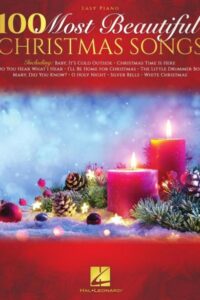 |
100 Most Beautiful Christmas Songs Easy Piano Vocal |
| 100 Most Beautiful Christmas Songs Piano Vocal Guitar |
 |
100 Most Beautiful Christmas Songs Piano Vocal Guitar |
| 100 Must-Know Jazz Tunes with MP3 audio tracks to Play Along |
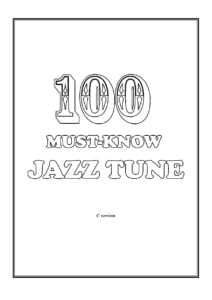 |
100 Must-Know Jazz Tune – C version |
| 100 of the Best Movie Songs Ever! Piano Vocal Guitar |
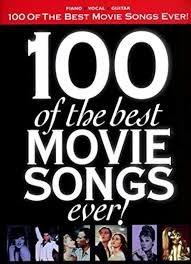 |
100 best movie songs 1&100 best movie songs 2 |
| 100 Of The Best Songs Ever For The Keyboard by Daniel Scott |
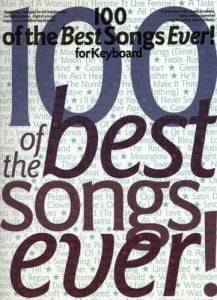 |
100 Of The Best Songs Ever For The Keyboard |
| 100 Piano Solos (100 popular standards of today arr. by Frank Booth) with guitar chords |
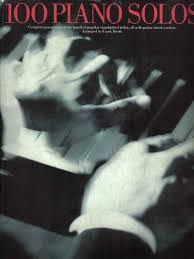 |
100 piano solos 1 |
| 100 Pop Hits Of The 90’s by Dan Coates |
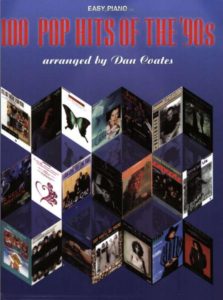 |
100 Pop Hits Of The 90’s by Dan Coates |
| 100 Rock N Roll Standards Piano Vocal Guitar chords |
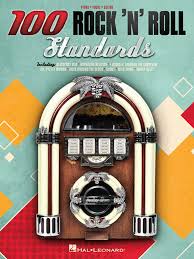 |
100 Rock N Roll Standards Piano Vocal Guitar chords contents |
| 100 Songs For Kids – Easy Guitar Lyrics with Tablature |
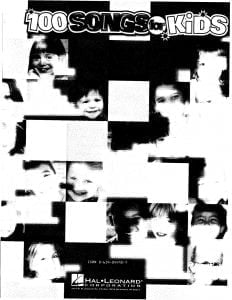 |
100 Songs For Kids – Easy Guitar Lyrics |
| 100 Tunes Every Musician Should Know Professional Chord Changes And Substitutions By Dick Hyman |
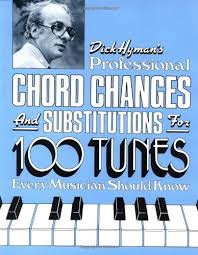 |
100 Tunes Every Musician Should Know Professional Chord Changes And Substitutions By Dick Hyman |
| 100 Ultimate Blues Riffs For Piano Keyboards |
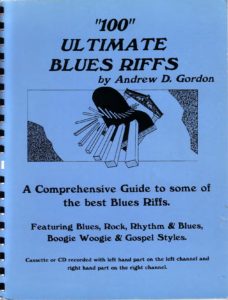 |
100 ultimate riffs jazz piano |
| 100 Women Of Pop And Rock 100 songs by 100 artists |
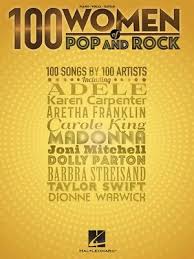 |
100 Women Of Pop And Rock 100 songs by 100 artists Piano Vocal Guitaral Leonard |
| 100 Years Of Popular Music 1980s Part Two Piano Vocal Guitar Chords |
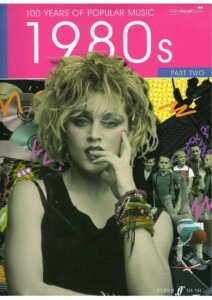 |
100 Years Of Popular Music 1980s Part Two Piano Vocal Guitar Chords |
| 1000 Examples of Musical Dictation (Ladukhin, Nikolay) | 1000 Examples of Musical Dictation | |
| 1000 Words – Final Fantasy X-2.mscz | ||
| 1001 Blues Licks by Toby Wine – Piano |
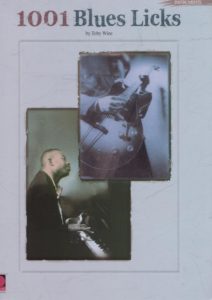 |
1001 Blues Licks by Toby Wine – Piano |
| 1001 Jazz Licks A Complete Jazz Vocabulary For The Improvising Musician (Jack Shneidman) |
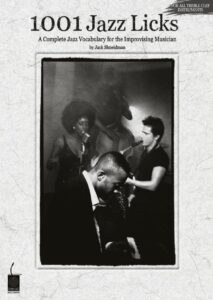 |
1001 Jazz Licks A Complete Jazz Vocabulary For The Improvising Musician (Jack Shneidman) |
| 101 Cançoes Que Tocaram O Brasil Nelson Motta (Book) (Brazilian Portuguese) |
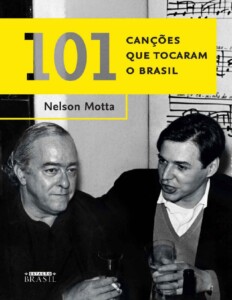 |
|
| 101 Frank Sinatra Hits For Buskers |
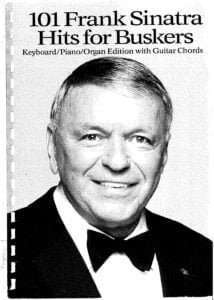 |
101 Frank Sinatra Hits For Buskers |
| 101 Mississippi Delta Blues Fingerpicking Licks Guitar and TAB by Larry McCabe |
 |
Larry McCabe – 101 Mississippi Delta Blues Fingerpicking Licks |
| 101 Must-Know Blues Licks (Guitar Educational) (Wolf Marshall) PDF + MP3 audio tracks Play Along with Tablature |
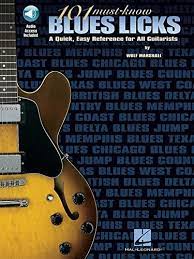 |
101 Must-Know Blues Licks (Guitar Educational) (Wolf Marshall) |
| 1015 Songs – The Original Musicians’s (Musicals) |
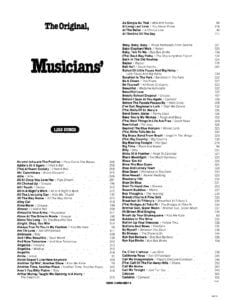 |
1015 Songs – The Original, Musicians’s (Musicals) |
| 106 Songs Everybody Plays |
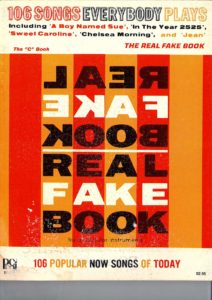 |
106 Songs Everybody Plays |
| 11 Short Classical Piano Pieces |
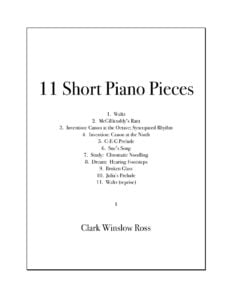 |
11 Short Classical Piano Pieces |
| 116 Arrangements Of Baroque, Classical & Ballet Pieces For Piano Solo |
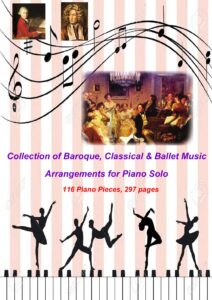 |
116 Arrangements Of Baroque, Classical & Ballet Pieces For Piano Solo |
| 129 Easy Pieces For Piano Solo, also for beginners |
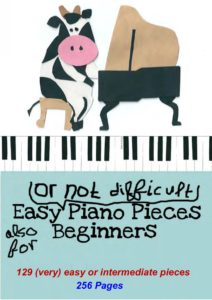 |
129 easy pieces for piano solo |
| 12th Street RAG – Liberace Collection Book of 5 compositions |
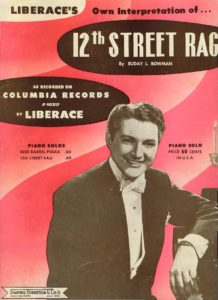 |
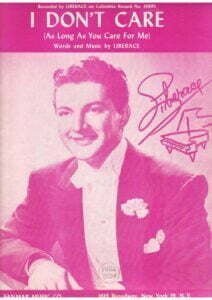 |
| 12th Street Rag by Euday Bowman (Piano Solo sheet music, Noten, partition, partitura, spartito).mscz | ||
| 150 Best Songs For Acoustic Guitar |
 |
|
| 150 More Of The Most Beautiful Songs Ever (Songbook) Piano Vocal Guitar |
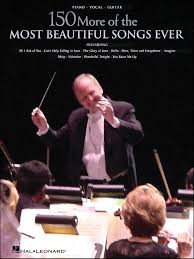 |
150 More Of The Most Beautiful Songs Ever (Songbook) Piano Vocal Guitar |
| 150 Of The Best Jazz Standards Ever |
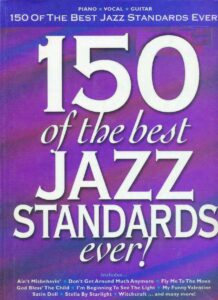 |
150 Of The Best Jazz Standards Ever |
| 150 Of The Most Beautiful Songs Ever 3rd Edition |
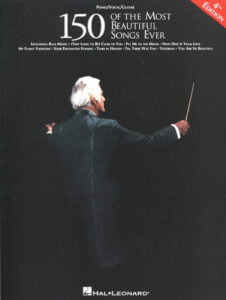 |
150 Of The Most Beautiful Songs Ever 3rd Edit1 and 150 Of The Most Beautiful Songs Ever 3rd Edit2 |
| 16 Pop and Movies Hits Keyboard Piano Book (Mike Emerson) |
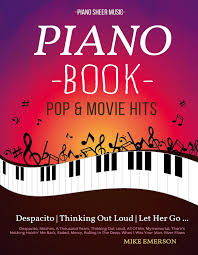 |
16 Pop and Movies Hits Keyboard Piano Book (Mike Emerson) |
| 1600 Pennsylvania Avenue The Musical By Leonard Bernstein And Alan Jay Lerner Vocal Selections |
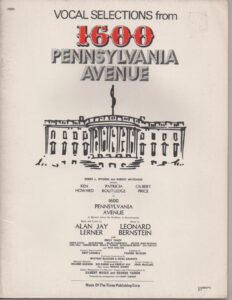 |
|
| 17 Moments of Spring – Mgnovenia (Mikael Tariverdiev) | ||
| 1812 Overture Op. 49 Thaikovsky (arr. piano solo) |
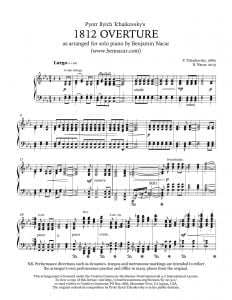 |
|
| 1950s Jazz (Fake Book lead sheet music) |
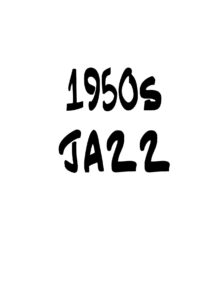 |
1950s Jazz (Fake Book lead sheet music) |
| 20 Century Fox Theme Transcription By Deusde Coppen |
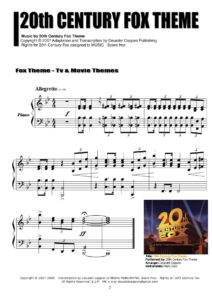 |
|
| 20 Modern BEBOP Licks – by Noah Kellman All Keys with left hands chords |
 |
20 Modern BEBOP Licks – by Noah Kellman All Keys with left hands chords |
| 200 Jazz Standards Tunes (chords progressions for C Instruments) Bob Taylor |
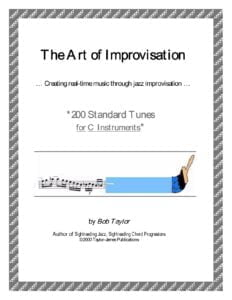 |
200 Jazz Standards Tunes (chords progressions for C Instruments) Bob Taylor |
| 200 Of The Best Songs From Jazz Of The ’50s | jazz of the 50s | |
| 2014 Top Hits Of 2014 Songbook Piano Vocal Guitar |
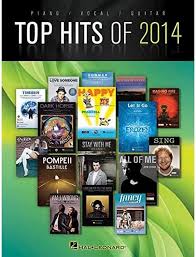 |
2014 Top Hits Of 2014 Songbook Piano Vocal Guitar |
| 2016 Top Hits Of 2016 Songbook Piano Vocal Guitar |
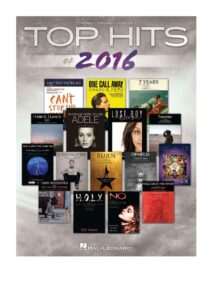 |
2016 Top Hits Of 2016 Songbook Piano Vocal Guitar |
| 2018 Greatest Pop Movie Hits Songbook For Piano |
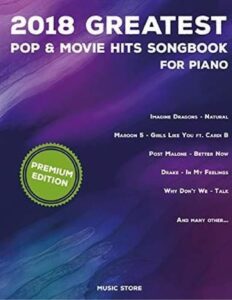 |
2018 Greatest Pop Movie Hits Songbook For Piano |
| 2019 GREATEST POP MOVIE HITS SONGBOOK FOR PIANO PART 2 Piano sheet music (Jim Presley) |
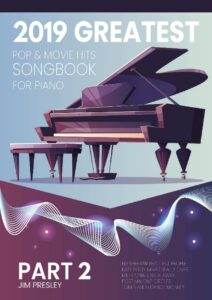 |
2019 GREATEST POP MOVIE HITS SONGBOOK FOR PIANO PART 2 Piano sheet music (Jim Presley) |
| 2020 Greatest Pop Piano Sheet Music Book Songbooks For Piano |
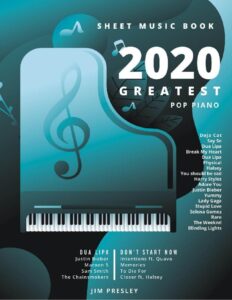 |
2020 Greatest Pop Piano Sheet Music Book Songbooks For Piano |
| 20th Century Classics Volume 1 |
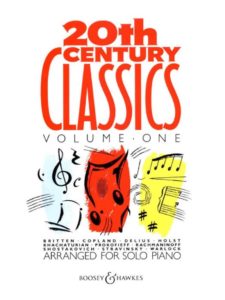 |
20th Century Classics Volume 1 |
| 20th Century Jazz Guitar by Richie Zellon (with Tablature) |
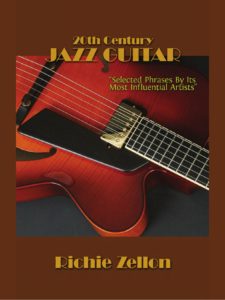 |
20th Century Jazz Guitar by Richie Zellon |
| 20th Century Masters Of Fingerstyle Guitar by John Stropes |
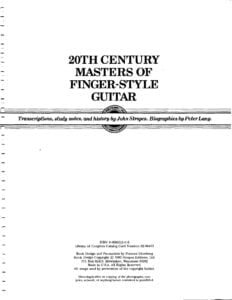 |
20th Century Masters Of Fingerstyle Guitar by John Stropes |
| 20th Century Piano Music – Book (1990) David Burge |
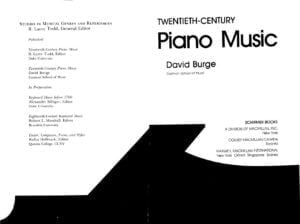 |
20th Century Piano Music Book (1990) David Burge |
| 24 Etudes Op.35 – Fernando Sor (1778 – 1839) (Musescore File).mscz | ||
| 24_Preludes_Op.34 Shostakovich.mscz | ||
| 25 Short Classical Guitar Pieces (with Tablature) |
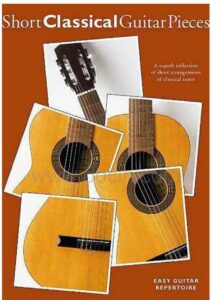 |
25 Short Classical Guitar Pieces |
| 262 Classic Piano Rags Various Composers |
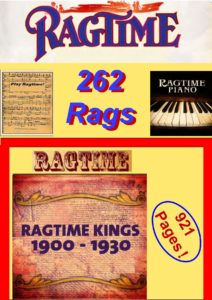 |
262 Classic Piano Rags Various Composers |
| 273 Easy And Intermediate Piano Pieces |
 |
273 Easy And Intermediate Piano Pieces contents |
| 28 Modern Jazz Trumpet Solos Book 2 |
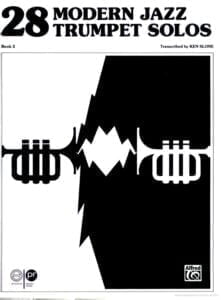 |
28 Modern Jazz Trumpet Solos Book 2 |
| 3.10 to Yuma (Marco Beltrami) | ||
| 30 Best Rock Guitar Songs Ever (Guitar TABs) |
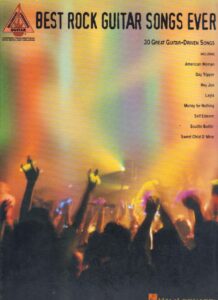 |
30 Best Rock Guitar Songs Ever (Guitar TABs) |
| 300 Sacred Songs Melody Lyrics Chords Fake Book Melody Lyrics Chords |
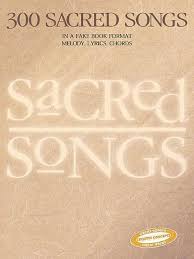 |
300 Sacred Songs Melody Lyrics Chords Fake Book Melody Lyrics Chords_compressed |
| 36 Christmas Carols Songs |
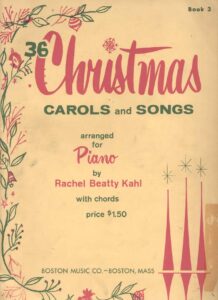 |
36 christmas carols songs |
| 38 Special Guitar Anthology Guitar Recorded Vers. with Tablature |
 |
38 special guitar anthology |
| 39 Progressive Solos For Classical Guitar (with Tablature) |
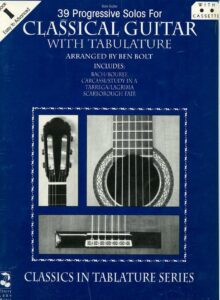 |
39 Progressive Solos For Classical Guitar |
| 39 Progressive Solos For Classical Guitar Book 2 (with Tablature) |
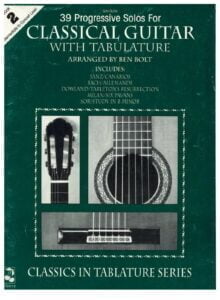 |
39 Progressive Solos For Classical Guitar Book 2 sheet music pdf |
| 40 Easy Guitar Pieces (Painted with the Sound) |
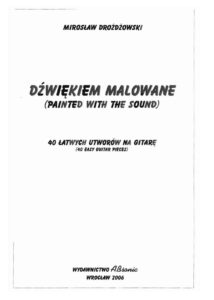 |
|
| 49 Most Popular Jazz Songs |
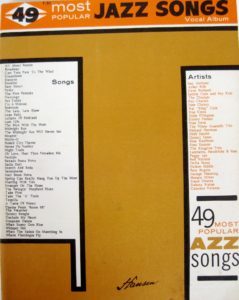 |
49 Most Popular Jazz Songs |
| 5 Christmas Songs Sheet Music Trumpet in B & Piano accompaniment (Viktor Dick) | 5 Christmas Songs Sheet Music Trumpet in B & Piano accompaniement (Viktor Dick) | |
| 50 Broadway Shows 50 Broadway Songs |
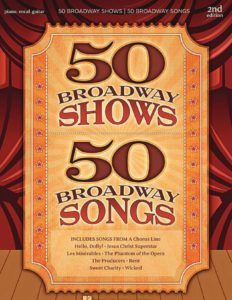 |
50 Broadway Shows 50 Broadway Songs |
| 50 Classical Guitar Solos In Tablature (Howard Wallach) with Tablature |
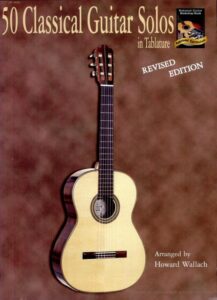 |
50 Classical Guitar Solos In Tablature (Howard Wallach) |
| 50 Essential Bebop Heads Arranged For Guitar Tablature (best lines Charlie Parker, Dizzy Gillespie, Thelonious Monk and more) |
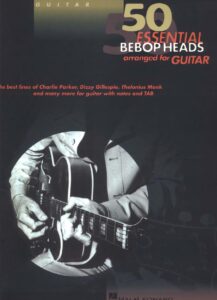 |
50 Essential Bebop Heads Arranged For Guitar Tablature (best lines Charlie Parker, Dizzy Gillespie, Thelonious Monk and more) |
| 50 Jazz Standards Every Jazz Musician Needs To Know with MP3 audio tracks to Play Along |
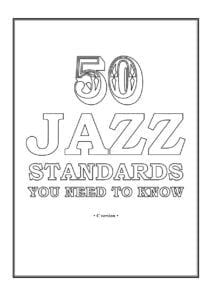 |
50 Jazz Standards Every Jazz Musician Needs To Know – C version |
| 50 Most Popular Classical Melodies (Easy Piano) |
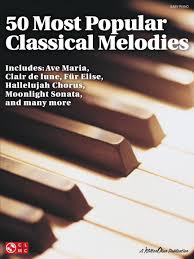 |
50 Most Popular Classical Melodies |
| 50 Of The Most Beautiful Piano Love Songs Solos Ever. |
 |
50 OF THE MOST BEAUTIFUL PIANO LOVE SONGS SOLOS EVER |
| 50 Piano Arrangements Of Hymns And Gospel Songs (Fred Bock’s Best) |
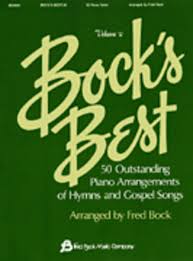 |
50 Piano Arrangements Of Hymns sheet music |
| 50 Piano Classics – Easy |
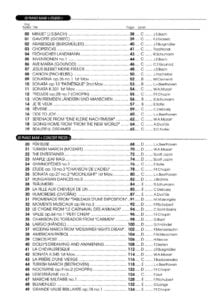 |
50 piano classics |
| 50 Riffs For Blues Guitar – Martin Shellard with MP3 audio to Play Along with Tablature |
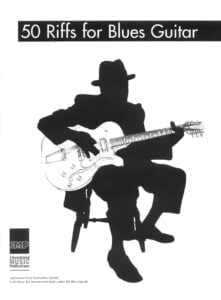 |
50 riffs for blues guitar |
| 500 Piano Intros For The Great Standards – Steinway |
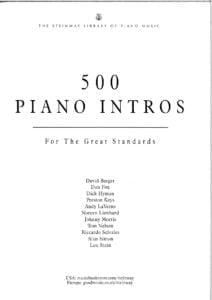 |
500 piano intros |
| 55 Country Classics (Voice, piano, Guitar) |
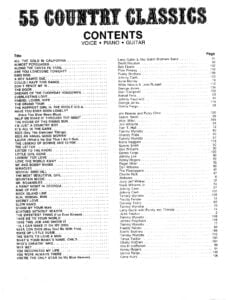 |
55 Country Classics (Voice, piano, Guitar) |
| 557 Jazz Standards (Sheet Music – in C for all instruments) swing to bop (lead sheet) |
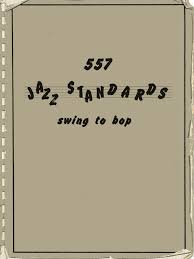 |
Standards (Sheet Music – Piano) |
| 60 Progressive Solos For Classical Guitar By Mark Phillips (with Tablature) |
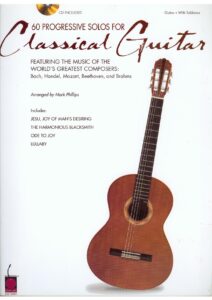 |
|
| 67 Fun Songs arranged by Jon Schmidt (Piano) |
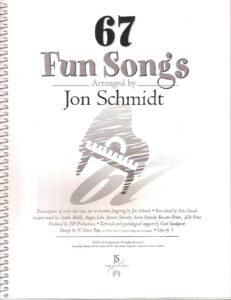 |
|
| 70’s Hits (Easy Piano Solos) – Hans-Gunter Heumann [Piano, Vocal, Chords] |
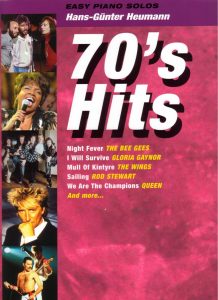 |
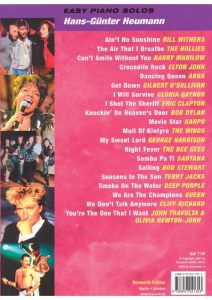 |
| 750.000 anni fa.l’Amore (Banco del Mutuo Soccorso) | ||
| 75th Anniversary A Tribute In Music From The 20s Through The 90s Various Artists Warner Bros |
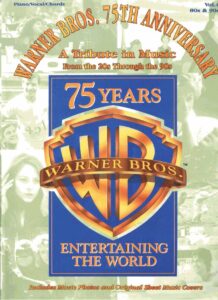 |
75th Anniversary A Tribute In Music From The 20s Through The 90s Various Artists Warner Bros |
| 78 Quarterly No 1 and 2 (1967) Book magazine |
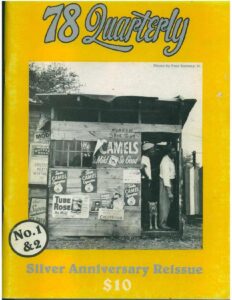 |
|
| 8 ½ Theme (Nino Rota) | ||
| 8 Femmes (Krishna Levy) | ||
| 8 Jazz scales you need to know.mscz | ||
| 80 Most Requested LDS Songs (Mormon music) |
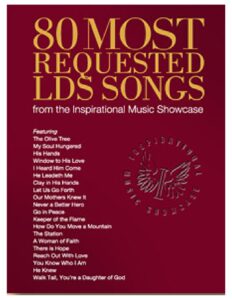 |
80 Most Requested LDS Songs (Mormon music) |
| 88 Piano Classics For Beginners – David Dutkanicz |
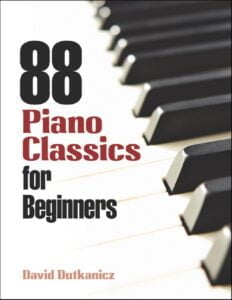 |
88 Piano Classics For Beginners – David Dutkanicz |
| 88 The Giants Of Jazz Piano by Robert L. Foerschuk (Book) foreword by Keith Jarrett |
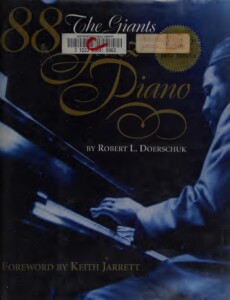 |
|
| 9 easy guitar pieces – Sveinn Eythorsson |
 |
|
| 97 Oeuvres pour Guitare de Jean Francois DELCAMP |
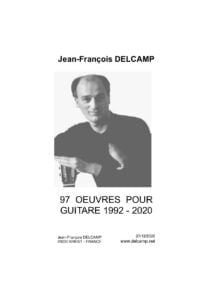 |
97 Oeuvres pour Guitare de Jean Francois DELCAMP |
| 99 Easy Piano Pieces |
 |
99 Easy Piano Pieces |
| A Beautiful Mind – A Kalidoscope of Mathematics |
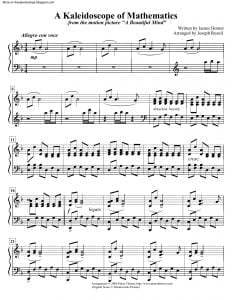 |
|
| A Beautiful Mind – All Love Can Be | A Beautiful Mind – All Love Can Be | |
| A Beautiful Mind – Kalidoscope | ||
| A Child Is Born – Oscar Peterson (Musescore File).mscz | ||
| A Chordal Concept For Jazz Guitar by Peter O’Mara |
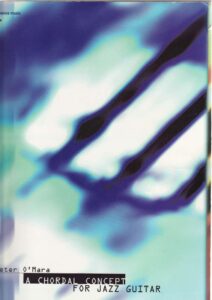 |
A Chordal Concept For Jazz Guitar by Peter O’Mara |
| A Ciascuno il Suo (Luis Bacalov) | ||
| A Clare Benediction – John Rutter – Piano Solo Arr. (Musescore File).mscz | ||
| A Clockwork Orange (Beethoviana) | A Clockwork Orange (Beethoviana) | |
| A Clockwork Orange (Beethoviana) (Musescore File).mscz | ||
| A Comparative Study Of The 24 Preludes Of A. Scriabin And Sergei Rachmaninoff (book) |
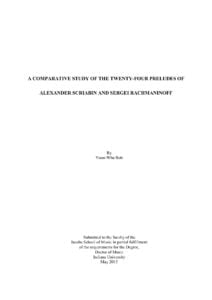 |
|
| A Complete Course of Instruction For The Piano-Forte (Dr Karl Merz) (1885) |
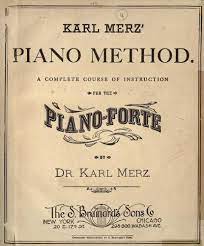 |
Instruction… |
| A Cool Yule. Ten Jazzy Christmas Songs |
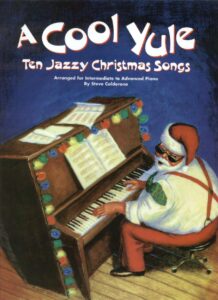 |
A Cool Yule. Ten Jazzy Christmas Songs |
| A Creative Approach To Jazz Piano Harmony Bill Dobbins |
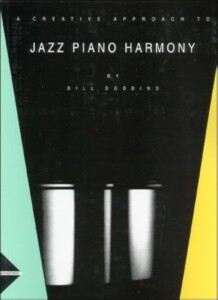 |
A Creative Approach To Jazz Piano Harmony Bill Dobbins |
| A Creative Approach To Practicing JAZZ – by David Baker |
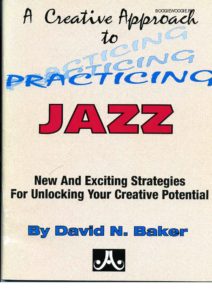 |
A Creative Approach To pravtising Jazz |
| A Dance of Dragons – Blood of the Dragon (Game of Thrones) Piano solo arr. |
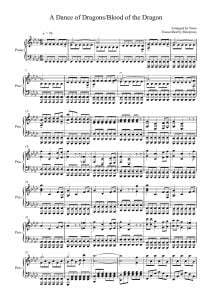 |
|
| A Dictionary of Music and Musicians Vol. 4 (A.D. 1450-1880) Edited in 1889 |
 |
Brad Mehldau – Anthropology (Solo Transcription sheet music)

Brad Mehldau
Brad Mehldau is one of the most respected and important musicians on the jazz scene, not only in North America, but also worldwide. He is recognized as one of the great figures of the piano, and has ceased to be the great promise that was held over him, showing off a bulky record label as leader, where recordings with his trio predominate, with a first formation made up of Larry Grenadier and Jorge Rossy, to move to a consolidated group with the same double bass player, but with the change of the Catalan drummer, for that of Jeff Ballard.
Likewise, he has several solo recordings, some of them of great interest, not only musical but also intellectual. Mehldau has participated in countless recordings as a guest artist or sideman, with some of the best jazz musicians; among others we mention Joshua Redman, Pat Metheny, Charles Lloyd, John Scofield, Lee Konitz, Charlie Haden, Kurt Rosenwinkel or Michael Brecker; and even he came to compose the wonderful and very little appreciated (as well as very little known) soundtrack, “Ma femme est une actrice”.
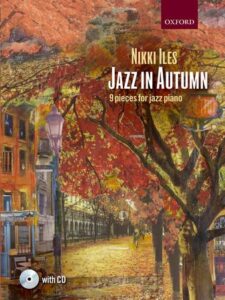
There is no doubt that the trio line-up is the group in which Mehldau, by nature, feels more comfortable on a musical level, with the particularity that when the recordings of their line-up appeared, they came to be named with the pretentious title of “ The art of the trio” (The Art of the trio).
Thus, they distanced themselves from a good number of important formations that throughout the history of jazz have left their musical mark, and as if with it they wanted to make things clear from a good start. Critics have consistently and repeatedly compared Mehldau to one of the greatest pianists of all time, Bill Evans, and more specifically to his trio. Mehldau has always been uncomfortable with these comparisons.
On the part of specialized critics, which makes us wonder, how is it possible that a musician today can be abstract from the entire great tradition of American piano in jazz, from Bud Powell, Bill Evans, through McCoy Tyner to Keith Jarrett, just to name a few? The answer is easy and simple: it is impossible.
But Mehldau’s musical conception since the beginning of his trio, and of the five volumes of his “Arte del trio”, has evolved in a clear and ostensible way, remaining reflected in all the projects in which he participates. But what very few fans have realized is that Mehldau tries to unfold his thoughts and musical ideas through very different stylistic formats, formats that allow him to explore and unleash the enormous creative flow that Mehldau carries within him.
This is what has happened with the duo formation, where the American pianist has been exposing his creative stimuli, which has allowed him to gather a good number of recordings, some of them as accompanist and others as leader.
In these duet recordings, various interesting aspects to take into account and worth highlighting can be appreciated. In all of them, due to the type of reduced training involved, there is ample space for the pianist to develop new ideas and concepts. On the one hand, some of them are perfectly recognizable from his most personal style, specifically, his taste for melody and for intimate atmospheres with a clear romantic tendency.
On the other, the existence of a strong musical empathy with the accompanying musician.
And finally, the experimentation of new ways of stylistic expression according to the different instruments that accompany it (tenor sax, piano, double bass, voice, guitar or mandolin), and mainly, a lot of music to discover and rediscover, and in addition to enjoy.
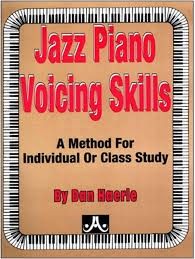
The first duo participation reflected at the disco graphic level can be found in the recording “Close Enough for Love” (Universal, 1994), where he accompanies the Dutch vocalist Fleurine (his wife). This recording produced and arranged by Brad Mehldau and Fleurine (and it could be said that, taken care of down to the smallest details, given that the pianist himself is in charge of the arrangements of the string section that participate in three songs, as well as the choice of the repertoire to be performed), reflects what Mehldau’s musical meanings will be in the future, and specifically a profound musical point of view in his performances.
In the first place, his taste for themes from pop, rock and classical music. Secondly, his singular style when interpreting particular and instinctive. In third place, the conception and development of simple and repetitive ideas throughout the performance that are changed and reworked (this causes you to play a note or succession of notes with one hand, to then improvise freely with the other, and that entails As a final result, a conjunction of ideas that, depending on the tone of the composition, can be romantic or full of melancholy).
Fourth and last, we must highlight the introspective and romantic vision, as well as the deployment of the technique of independence of hands, more typical of a classical pianist than of a jazz musician, which entails a virtuoso and precious skill like few others. Sometimes brings out a jazz pianist (except for Keith Jarrett).
On this recording, Fleurine and Mehldau perform songs by R. Davies and Roger Hodgdon (members of the group Supertramp), by Jimi Hendrix, Antonio Carlos Jobim, Michel Legrand, Pat Metheny (the classic song “Better days ahead” from the album A Letter from Home) and various songs by the pianist himself, where Fleurine puts lyrics to them (the Elegiac Cycle album and another entitled Songs).
The interesting thing about these interpretations is to perceive the intimate character of the themes developed (with a Fleurine who is more than correct in the different languages she interprets, Portuguese, English or French), the overflowing personality of the pianist both in the moments in which he plays alone and in the accompaniment of the singer, always linked to the triumph of the melody.
This first duet recording with a female vocalist will lay the foundations for the various collaborations in this type of format. The intervention with Fleurine would be repeated on his next recording Fire, but this time Mehldau’s participation was limited to a contribution to several songs, but without reaching the interesting results achieved with the other recording.
The following duo collaboration is the one starring Joel Frahm with saxophonist Joel Frahm with Brad Mehldau, Don’t Explain (Palmetto Records, 2004), an album due to strange circumstances quite unknown by fans, but with interesting musical approaches by the part of Mehldau.
This recording was born as a result of the friendship that both musicians have professed since they were 15 years old, a circumstance that means that they know each other perfectly, due to the experiences, studies and performances that they carried out together since they were young, which finally made it possible for in 2001, they could enter a recording studio, to carry out this project.
The first thing we notice about this collaboration is that, of the ten songs recorded, there is only one song authored by the saxophonist, while the rest are standards and songs by T. Monk (specifically, two versions of Round Midnight), by S. Rollins (Oil), or by O. Coleman (Turnaround).
The music obtained from the songs performed is perceived as detached, dark at times, with passages of free improvisation, but with certain doses of swing. Faced with so much space to create music, Brad Mehldau multiplies himself, alternating between the times of soloist, accompanist of the saxophonist or as the operation of a complete rhythm section.
The pianist that can be heard on this recording is less melodious than what fans know, instead using large doses of experimentation and expressiveness. This duet recording with saxophonist Joel Frahm allows you to discover facets that are very different from Mehldau’s usual ones, and to enjoy a free musician to create musical dissonances and textures.
Another noteworthy duo collaboration is the one starring Brad Mehldau on Polish double bassist Darek Oleszkiewicz’s debut album, Like a Dream (Cryptogramphone, 2004). On this occasion, the five opening tracks on the album are developed exclusively with the American pianist.
The repertoire chosen for this recording is very different from the previous one, all the songs that are performed are original by Oleszkiewicz except for You don’t know what love is. For this recording, Mehldau presents himself as the perfect partner for the double bass player, who starts from some exquisite compositions, with clear romantic atmospheres, where the melodic and lyrical lines (with a certain melancholic air) are the protagonists of the musical development that is obtained.
In this context, Mehldau finds himself like a fish in water, allowing a conversation as equals with his partner, and where each of the two musicians participates in the improvisation that takes place, offering as a final result an organic ensemble, where sensuality, lyricism and melody triumph unquestionably.
Of the collaboration that Brad Mehldau has had throughout his musical career with various double bass players, one especially fruitful (mainly in the trio format) should be noted, that of Larry Grenadier. With this double bass player he has played in various contexts which has allowed him to collaborate in a duo format.
To comment on this mutual collaboration, it is necessary to resort to the pirated discography of Brad Mehldau (popularly known in its English meaning as bootlegs). Any good fan of the pianist will be aware of the extensive and large pirate discography of the same, and to his despair in all kinds of formats, solo piano, duets, trios and quartets.
Within this extensive sea of recordings there is one of special interest, it is the recording of a concert held in the German city of Cologne, on April 28, 1999; specifically the duo formed by Brad Mehldau and Larry Grenadier.
The music that makes up this concert is particularly vigorous, Grenadier is a musician who is generous in his interpretation and who does not settle for a role of mere accompanist, quite the contrary; to contribute with powerful musical phrases, many of them very elaborate, which provides an enormous flow of ideas that serve as a base (or, depending on the moment, as a complement) to Mehldau, to build his own dialogue.
Mehldau’s piano on this recording is demanding, battle-hardened and complicated, not only when he acts as a soloist, but also as an accompanist; deploying great interpretive resources, with a powerful sound that is at times repetitive and obsessive (characteristic of the ‘Mehldau style’), full of improvisations and where one of its most personal features, such as the melody, is replaced in many moments for a fluid, overwhelming and very powerful performance (just listen to the song “London Blues” as an example).
All this makes the Mehldau and Grenadier duo become an empathic, vertiginous and demanding conversation, which entails and demands from the fan, an attentive and precise listening, in order not to lose detail about the music that both musicians extract. A sound document that is well worth looking for, despite the difficulty that this will entail, but that, like any precious treasure, will offer a good reward.
It is in recent years, where the creative genius of Brad Mehldau has been squeezed to the fullest, he has participated in several projects as a duo of considerable relevance, one as leader, together with Renée Fleming, and another as co-leader (together with Pat Metheny).
For the first of them, starting from a completely different conception than the previous projects mentioned, Mehldau embarks on a recording that very few musicians today are in a position to carry out. An album conceived without jazz attitudes, without improvisations, a work in terms of cultured music, both in form and content. Interesting if not spectacular, the album published by Brad Mehldau with the collaboration of the American soprano Renée Fleming, (Brad Mehldau and Renée Fleming, Love Sulime –Nonesuch, 2006-).
It must be stated at the outset that listening to this album is not easy for fans of the pianist, and surely, more than one Mehldau follower will find themselves, to say the least, surprised as well as overwhelmed by his creative facet. For this recording, Mehldau has prepared a musical and vocal repertoire that can be framed within classical and contemporary aesthetics. Classical, due to the musical approach used of the piano and the voice, and that in some way recalls the musical form of the German lied.
And contemporary, due to the (sometimes inaccessible) treatment of the piano, closer to the line of the Second Vienna School (in which Arnold Schönberg, Alban Berg and Antón Webern played a fundamental role), although with a much more focused on the use of tonality than on the use of different and changing chords to which Mehldau has accustomed us.
Given this approach, the bulk of this recording is made up of some themes based on the poems of the German poet Rainer Maria Rilke The Book of Hours: Love Poems to God. Along with these songs, we find the addition of another three, based on the poems of the American writer Louise Bogan The Blue Estuaries, to end with a theme written by Mehldau’s wife, Fleurine, and which gives the work its title.
The music that accompanies these poems is composed by Mehldau himself, finding his creative support romantically typical of musicians such as Schubert, Schumann, Beethoven and even Brahms (one of the authors that the American pianist most admires and whom he has resorted to on many occasions in his solo piano concerts).
It is in the poems of Rainer Maria Rilke where we can appreciate the richest and most creative part of this project (and from whom he already used material for his first piano album only Elegiac Cycle), where we can appreciate minimalist moments with a strong religious burden as the theme Your first Word was Light, circumstance is produced by the interpretation based on Mehldau’s piano chords together with a dark and bleak interpretation of the soprano Renée Fleming, which confer a somewhat gloomy and tortuous reading, but very interesting.
It is also possible to appreciate the most recognizable Mehldau at a rhythmic-harmonic level in the song I Love the dark hours of my being, in the clearest style of Nick Darke’s song Things Behind The Sun, or on the contrary clearly expressionist influences, which allow the soprano interpretations with a strong emotional charge, deep, full of feeling and with a diction, at times crystalline.
As regards Brad Mehldau’s interpretation, it should be noted that throughout the recording, he demonstrates a seductive technique, devoid of the jazz approaches that are known to him, full of tonalities or chords, which demonstrate a composition of the themes by very structured moments, but not devoid of certain melodic or rhythmic moments, but with an evident contrast between the melodic simplicity and the expansion interpretation.
The record work closes with the most conventional theme of all those that are performed (Love Sublime), and therefore the most recognizable of Mehldau’s piano style, with a beautiful and provocative musicality, and with certain doses of improvisation. Finally, in reference to this duet work, it should be noted that Mehldau’s creative impulse goes beyond the music created or performed, and therefore the art or artistic work that he performs is the result of a state of risk within the reach of very Few artists today, and that clearly demonstrates that he is in a creative stage very different from that of other musicians.
Of the duet collaborations with singers, it is also worth mentioning, albeit by way of example, the one carried out with Anne Sofie Von Otter Love Songs (Naïve, 2010) and that, as the title and credits of the same indicate, it is a work which is dedicated and inspired by the love theme of the songs. With two well-differentiated compacts, the first is made up mainly of poems by Sara Teasdale with music by Mehldau, and a second compact based on a repertoire of classical and modern themes.
One of the most relevant collaborations in duo format was the recording made with Pat Metheny, Metheny/Mehldau (Nonesuch, 2007). This collaboration, both expected and desired by many fans, stems from a mutual admiration of each musician, and from a deep knowledge of the musical work of each one (a good reflection of this, are the comments that we can read from both Mehldau and Metheny in the inner folder of the compact).
This record work is made up of ten songs, two of which are with the rhythm section of the pianist’s trio -Larry Grenadier and Jeff Ballard-, although the primary and important part is the duet work made between pianist and guitarist.
The compositions that both Metheny and Mehldau contribute to this project demonstrate the musical world that each one has expressed individually throughout his career, it being important to highlight that the union of these two styles is not carried out in a clear-cut or forced way (circumstance that sometimes causes the personality of one of the musicians to be erased or weakened, to the point of not being recognizable), but they have been perfectly harmonized, with the ultimate goal of achieving as a result the realization of a creation sophisticated, highly creative and expansive, with an at times telepathic interconnection.
Within these approaches, it is important to point out the special internal rhythmic treatment that each composition has, and that allows each musician to participate and provide ideas to his partner, and not go against the music performed.
For this project, Mehldau displays his best interpretive weapons, and specifically a musical download full of sensitivity, lyricism and good taste, a sophisticated touch in the way he plays the piano, as well as a rhythmic interrelation with Pat Metheny that is difficult to achieve with other musicians. , which provides music that is enjoyed immediately, and that will force the fan to listen carefully and repeatedly to it.
Also, worth mentioning within the duet performances starring Brad Mehldau is the compact publication of Marian McPartland’s Piano Jazz series, Piano Jazz McPartland/Mehldau (Concord Music, 2007), taken from the National Radio program. It should be noted that in this series of recordings presented by the British pianist Marian McPartland, she converses with the guest musician and performs various performances.
In this case, the guest is Mehldau, and the conversation allows us to talk about the pianist’s career, as well as his influences (both classical and jazz). On this recording (which dates back to 1996) there are three songs performed as a duet between Mehldau and McPartland, Stella by Starlight, I see your face before me and No particular blues (the latter, co-authored by the two pianists).
Despite the antiquity of this recording, the duet performance with two pianos, while not exalted, is not without its interest. The interpretation of these themes is carried out from an excessively academic and traditional point of view, without much ornamentation and musically supporting each other. Without being these interpretations nothing spectacular, on the contrary they demonstrate an experimental vision on the part of Mehldau, which has been outlined and increased over the years.
Of the latest projects that Mehldau has led as a duo, the following should be noted in chronological order: Brad Mehldau and Kevin Hays, piano duo, Modern Music (Nonesuch, 2011); Brad Mehldau and Mark Guiliana, piano and drums duo, Mehliana-Taming The Dragon (Nonesuch, 2014); the one by Joshua Redman and Brad Mehldau, sax and piano duo (Nonesuch, 2016), and the last and most recent one by Chris Thile and Brad Mehldau, mandolin and voice with piano (Nonescuh, 2017).
As can be seen, Brad Mehldau’s musical and creative interests are diverse and highly heterogeneous. In Modern Music, Mehldau signs, together with his pianist friend Kevin Hays, a recording with a strong intellectual charge, a musical banquet thanks to the compositions of Patrick Zimmerli, the pianists themselves and North American composers of the minimalist movement, Steve Reich and Philip Glass, as well as Ornette Coleman’s famous composition Lonely Woman.
On the contrary, in Mehliana-Taming The Dragon the American pianist presents a totally different proposal (starting with the cover of the compact) from what has been heard to date, mainly because electronics are used as a musical catalyst for creativity, which is a sharp and explicit turn only at the height of the greatest creators.
This turn that Mehldau carries out is not a posture or a mere whim, but a perfectly thought out and prepared project, where the traditional piano is left aside as the main instrument (despite the fact that it is included in the project, although very diluted) and takes as an expressive element the synthesizers and the Fender Rhodes.
For this project he has a collaborator whom he knows perfectly and with whom he has played on a considerable number of occasions, drummer Mark Guiliana, a musician accustomed to projects with a certain creative and sonorous depth and completely removed from traditional approaches.
In fact, over the last two years these musicians have been performing live giving shape to this project until finally it was crystallized and embodied in a recording.
Of the most recent projects in the formation of a duo that appeared on the record market by Mehldau (and in which, curiously, he appears as co-leader), those of Joshua Redman and Chris Thiele, it is necessary to point out the enormous creative commitment that they give off, having to specify that these have seen the light after countless live concerts over the years, which has led to the projects taking shape and autonomy of their own.
In fact, the CDs contain songs from live performances and do not come from sessions carried out in recording studios, which in some way suggests the strong involvement that has been carried out in them. In Joshua Redman’s it should be noted that the performances emanate a deep musicality product of the human relationship between both musicians (it should be noted that they profess a personal friendship that comes from many years ago), since they are not only limited to playing and broadcasting musical notes, but there is a mutual listening, a challenge, a musical challenge to extract from your partner all the best you can give.
This is achieved through a deep empathy that is the fruit of many years of work and, above all, of a sincere friendship. On the contrary, the recording with Chris Thiele is radically opposite and very unequal as it presents two completely different musicians and far removed from the styles that both develop, the virtuoso of the mandolin, the bluegrass and vocalist Chris Thile, and the jazz pianist Brad Mehldau.
With his duet performances, Mehldau intends to acquire a position much more distant from the music or from the performance itself, and where the very act of musical performance is beyond his own instrument, having a vast space to develop his ideas, and where silence, space and music are part of a whole that serves as expression.
Brad Mehldau with all this unites creation and dialogue; dialogue between the accompanist and the piano, but above all a dialogue with himself, with his own personality, with his own idiosyncrasy, and that allows him to place himself far ahead of other musicians.
Best Sheet Music download from our Library.
Browse in the Library:
| Artist or Composer / Score name | Cover | List of Contents |
|---|---|---|
| Timbaland – Way I Are | ||
| Time (Inception) – Hans Zimmer – Solo Piano (Musescore File).mscz | ||
| Time is like a dream (Interlude OST) Georges Delerue | ||
| Time Travel Theme – Secret (Jay Chou) |
 |
|
| Timothy Brown – Daydreaming |
 |
|
| Timothy Brown – Lyric Expressions Solo Piano |
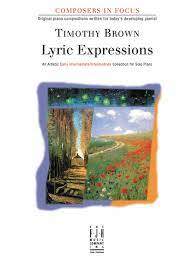 |
|
| Timothy Brown – Soliloquy |
 |
|
| Tina Arena – Burn | ||
| Tina Turner – I, Tina (Book) |
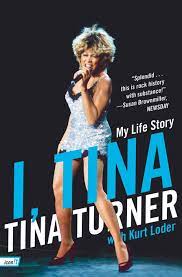 |
|
| Tina Turner – The Best Of Simply The Best Piano Vocal guitar Chords |
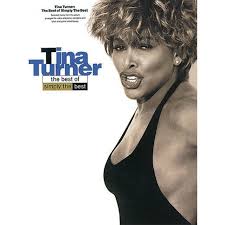 |
Tina Turner – The Best Of Simply The Best Piano Vocal guitar Chords – – 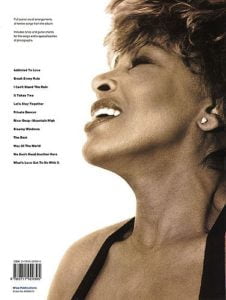 |
| Tina Turner – What’s Love Got To Do With It | Tina Turner – What’s Love Got To Do With It | |
| Tina Turner – What’s Love Got To Do With It.mscz | ||
| Tina Turner Goldeneye (James Bond frilm Theme) |
 |
|
| Titanic – My Heart Will Go On (James Horner) |
 |
|
| Titanic – James Horner Full songbook |
 |
Titanic – James Horner |
| Titanic Movie Theme – My Heart Will Go On – Piano Guitar Vocals | Titanic Movie Theme – My HeArt Will Go On – Piano Guitar Vocals | |
| To Be Pleasing You Jazz Piano Solo arr. sheet music |
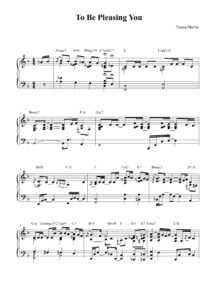 |
|
| To love you more (Celine Dion) | ||
| To Zanarkand Final Fantasy X |
 |
|
| To Zanarkand (Final Fantasy X) (Musescore File).mscz | ||
| TOCH, E. – La Melodía(Spanish) 1923 |
 |
|
| Tom Jobim Girl from Ipanema | Tom Jobim girl from ipanema | |
| Tom Jobim Agua de Beber | Tom Jobim Sheet Music – Agua de Beber | |
| Tom Jobim Desafinado | ||
| Tom Jobim Ligia | ||
| Tom Jobim Samba Verao | ||
| Tom Jobim songbook 1 Guitar (by Almir Chediak) |
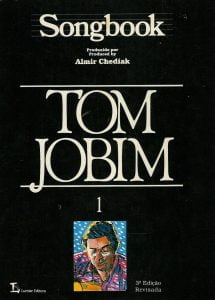 |
Tom Jobim songbook I (Guitar) |
| Tom Jobim songbook 2 Guitar (by Almir Chediak) |
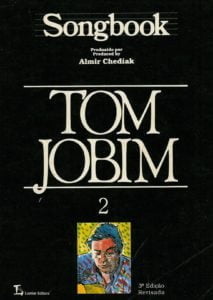 |
Tom Jobim songbook I (Guitar) |
| Tom Jobim songbook 3 Guitar (by Almir Chediak) |
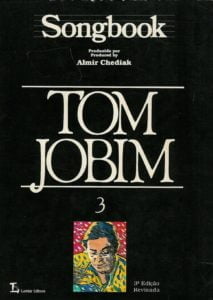 |
Tom Jobim songbook I (Guitar) |
| Tom Jobim Triste | ||
| Tom Jobim Vivo Sonhando | ||
| Tom Jones Greatest Hits |
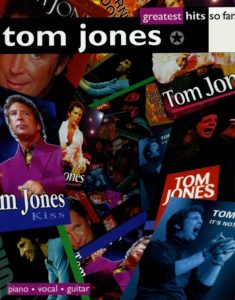 |
Tom Jones Greatest Hits |
| Tom Kolb – Chord Progressions for Guitar (with audio MP3) |
 |
Tom Kolb – Chord Progressions for Guitar (with audio MP3) |
| Tom Odell Another Love |
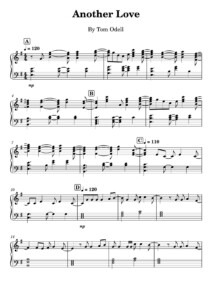 |
|
| Tom Petty Anthology Guitar Anthology Series with TABs |
 |
Anthology Tom Petty Guitar |
| Tom Petty Sheet Music Anthology – Tom Petty |
 |
Tom Petty Sheet Music Anthology – Tom Petty |
| Tom Petty, Best of (Songbook), The – Tom Petty sheet music |
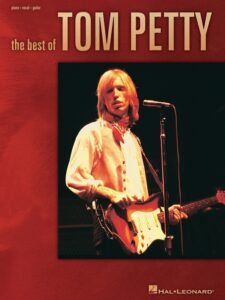 |
Tom Petty, Best of (Songbook), The – Tom Petty sheet music |
| Tom Turpin The Harlem Rag | Tom Turpin Harlem-Rag | |
| Tom Waits -Alice (entire album songbook) Piano-vocal-guitar |
 |
Tom Waits -Alice (entire album songbook) Piano-vocal-guitar |
| Tom Waits Anthology 29 Titres |
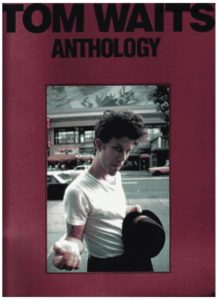 |
Tom Waits Anthology |
| Tom Waits Beautiful Maladies |
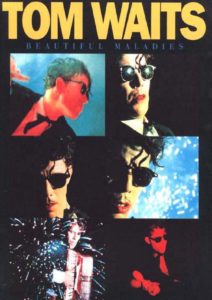 |
Tom Waits Beautiful Maladies |
| Tom Waits Blood Money |
 |
Tom Waits Blood Money |
| Tommy Emmanuel The Mystery Transcriptions Mel Bay Presents Guitar TAB |
 |
Tommy Emmanuel The Mystery Transcriptions Mel Bay Presents Guitar TAB |
| Tommy Flanagan – Moritat Mack The Knife Solo transcription | Tommy Flanagan – Moritat Mack The Knife Solo transcription | |
| Tommy Flanagan Wee Dot sheet music transcription |
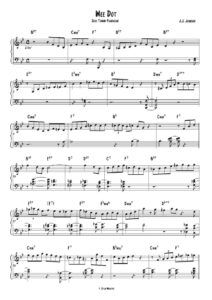 |
|
| Tommy Flint – Best Of Country Guitar Solos with audio MP3 with TABs |
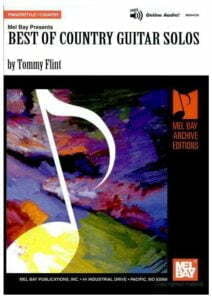 |
Tommy Flint – Best Of Country Guitar Solos with audo content |
| Tommy Shaw – Boat On The River from Styx |
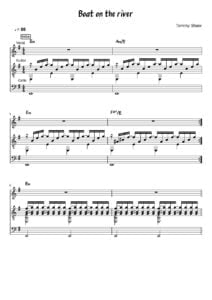 |
|
| Tomorrow (Europe) | ||
| Tomorrow (From Annie) Sheet Music – Charles Strouse |
 |
|
| Tomorrowland Music From The Motion Picture Soundtrack Piano Solo by Michael Giacchini |
 |
Tomorrowland Music From The Motion Picture Soundtrack Piano Solo by Michael Giacchini |
| Tomoya Naka Rainy Song | Tomoya | |
| Tonari no Totoro – My Neighbor Totoro (Joe Hisaishi) |
 |
|
| Toni Braxton – Unbreak My Heart | ||
| Tonight from West Side Story (Leonard Bernstein) Easy Piano Solo arr. sheet music | Tonight from West Side Story (Leonard Bernstein) Easy Piano Solo arr. sheet music | |
| Tonight From West Side Story (Leonard Bernstein) Easy Piano Solo Arr. Sheet Music (Musescore File).mscz | ||
| Tony Alonso Mass Of Joy And Peace For Sab Voices And Accompaniement |
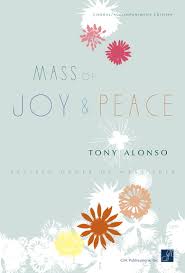 |
|
| Tony Bennett Life Is a Gift The Zen of Tony Bennett (Book) |
 |
|
| Top 10 22 Pop Hits Piano Vocal Guitar Chords |
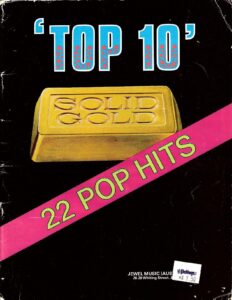 |
Top 10 22 Pop Hits Piano Vocal Guitar Chords |
| Top 10 Classical Favorites |
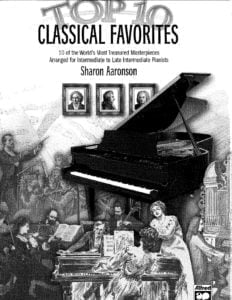 |
Top 10 Classical Favorites |
| Top Christian Hits Of 2019 2020 Piano Vocal Guitar 20 Powerful Songs |
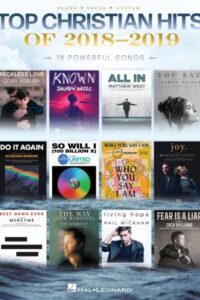 |
Top Christian Hits Of 2019 2020 Piano Vocal Guitar 20 Powerful Songs |
| Top Hits For Piano Solo 20 Great Songs |
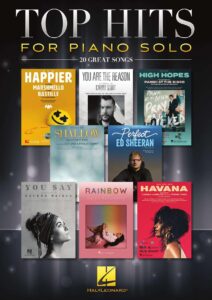 |
Top Hits For Piano Solo 20 Great Songs |
| Top Hits Of 2011 |
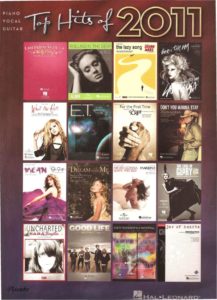 |
TOP HITS 2011 |
| Top Hits Of 2013 |
 |
Top Hits Of 2013 |
| Top Hits Of 2017 Sheet Music 18 great songs Piano Vocal Guitar |
 |
Top Hits Of 2017 Sheet Music 18 great songs Piano Vocal Guitar |
| Top Hits of 2018 Songbook – sheet music |
 |
Top Hits of 2018 Songbook – sheet music |
| Top Movie Hits SongBook |
 |
Top Movie Hits SongBook |
| Top Rock Volume 2 (Guitar) |
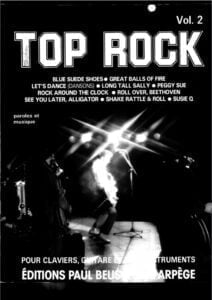 |
Top Rock songbook guitar |
| TOP TEN – N°1 |
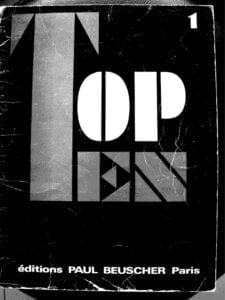 |
TOP TEN – N°1 |
| Top Ten – N°2 |
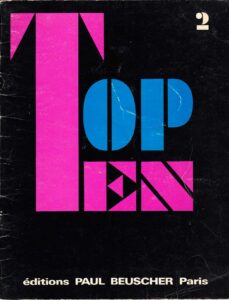 |
Top Ten – N°2 |
| Top Ten 40 (Guitar) |
 |
Top ten 40 guitar songbook |
| Top Ten 43 (Guitar) |
 |
Topp ten 43 guitar songbook |
| Top Ten Slow (Guitar) |
 |
Top Ten Slow (Guitar) |
| TOP TEN X3 (5) Guitar piano |
 |
TOP TEN X3 (5) Guitar piano |
| Toquinho – A Arte Brasilera de – sheet music songbook Guitar Tabs |
 |
Toquinho – A Arte Brasilera de – sheet music sogbook Guitar Tabs |
| Toquinho – Aquarela Guitar with TABs |
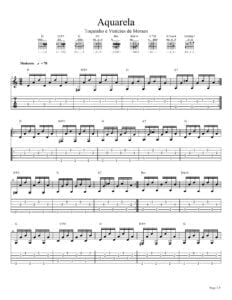 |
|
| Tori Amos – Silent All These Years | ||
| Tori Kelly Paper Hearts Piano |
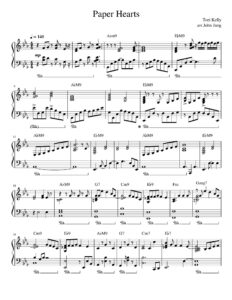 |
|
| Torna A Surriento Traditional Neapolitan Song By Ernesto De Curtis (Easy Piano Solo With Lyrics In English) |
 |
|
| Torna a Surriento.mscz | ||
| Toshifumi Hinata End Title (Tokyo Love Story) |
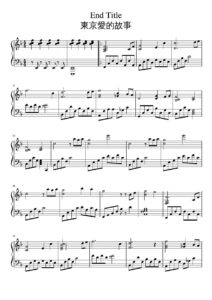 |
|
| Toshihiko Sahashi Fuuki Iinchou Hibari Kyoya | Toshihiko Sahashi Fuuki Iinchou Hibari Kyoya | |
| Toshihiko Sahashi Katekyo Hitman Reborn Hibari Kyoyas Theme | Toshihiko Sahashi Katekyo Hitman Reborn Hibari Kyoyas Theme | |
| Toshihiko Sahashi Tsuna Awakens Ost Katekyo Hitman Reborn |
 Toshihiko Sahashi Tsuna Awakens Ost Katekyo Hitman Reborn
Toshihiko Sahashi Tsuna Awakens Ost Katekyo Hitman Reborn |
|
| Total Guitar – The ultimate scale book |
 |
|
| Toto Guitar Anthology Authentic Guitar Tab |
 |
Toto Guitar Anthology Authentic |
| Toto – Africa (Easy Piano Solo Arr. Sheet Music) | Toto – Africa (Easy Piano Solo Arr. Sheet Music) | |
| Toto – Africa (Intermediate Piano Solo arr.) | Toto – Africa | |
| Toto – Childs Anthem (Intermediare Piano Solo arr.) | Toto – Childs Anthem (Intermediate Piano Solo arr) | |
| Toto – The Best Of Toto (Guitar, Kbds, Bass, Drum, Vocal) | Toto – The Best Of Toto (Guitar, Kbds, Bass, Drum, Vocal) | |
| Tournemire op. 33 Po me Mystique | ||
| TOY STORY – Randy Newman – You’ve Got A Friend In Me |
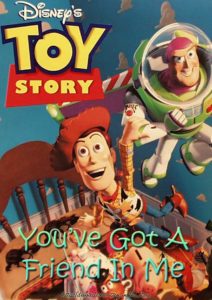 |
|
| Toy Story – When She Loved Me – Sarah Mclachlan | ||
| Toy Story Easy Piano Collection (Songbook) 8 Songs From The Popular Movies |
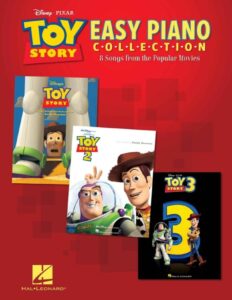 |
Toy Story Easy Piano Collection (Songbook) 8 Songs From The Popular Movies |
| Tracy Chapman – Complete Songbook |
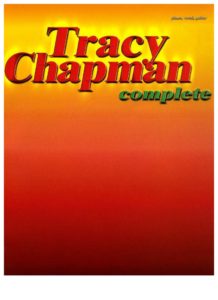 |
Tracy Chapman – Complete Songbook |
| Tracy Chapman – Tracy Chapman music songbook |
 |
Tracy Chapman – Tracy Chapman music songbook |
| Tracy Chapman Fast Car Sheet Music |
 |
|
| Traditional – Swing Low Sweet Charriot | Traditional – Swing Low Sweet Charriot | |
| Traditional Dona Nobis Pacem (Piano Solo Arr.) Give Us Peace Musescore File.mscz | ||
| Traditional English Carol – The First Noel | Traditional English Carol – The First Noel | |
| Traditional English Carol The First Noël (Piano Solo).mscz | ||
| Trailer Park The Musical Piano Vocal Score by David Nehls and Betsy Kelso |
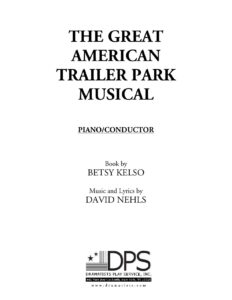 |
|
| Train – Drops Of Jupiter | ||
| Transparent Theme (Solo Piano) (Musescore File).mscz | ||
| Tratado de Armonia – Arnold Schoenberg (Spanish-Español) | Book Theory | |
| Travelin Soldier – Dixie Chicks | ||
| Trepat , Carles – Homenaje A Baden Powel |
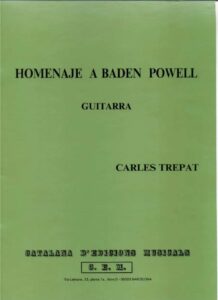 |
|
| Trepat, Carles Nana De Sevilla Partitura (Guitar, Guitarra) |
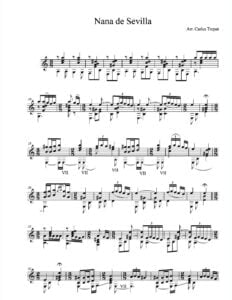 |
|
| Trinity – Pop and Rock Guitar Grade 1 Contemporary & Classic songs with TABs |
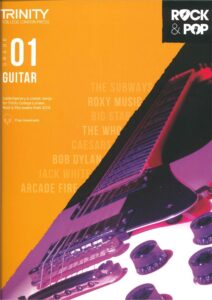 |
Trinity – Pop and Rock Guitar Grade 1 Contemporary & Classic songs |
| Trinity – Pop and Rock Guitar Grade 2 Contemporary & Classic songs with TABs |
 |
Trinity – Pop and Rock Guitar Grade 2 Contemporary & Classic songs |
| Trinity – Pop and Rock Guitar Grade 3 Contemporary & Classic songs with TABs |
 |
Trinity – Pop and Rock Guitar Grade 3 Contemporary & Classic songs |
| Trinity – Pop and Rock Guitar Grade 4 Contemporary & Classic songs with TABs |
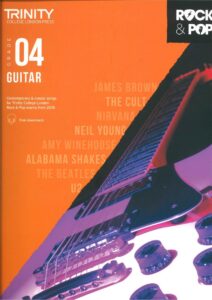 |
Trinity – Pop and Rock Guitar Grade 4 Contemporary & Classic songs |
| Trinity 2010-2015 Guitar Grade 3 Pieces & Exercises |
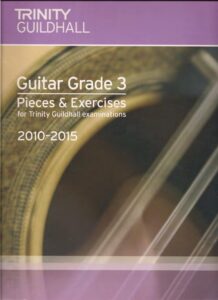 |
|
| Trinity Classical Guitar 2010-2015 Grade 07 |
 |
|
| Trinity Classical Guitar 2020-2023 Grade 01 |
 |
|
| Trinity Classical Guitar 2020-2023 Grade 02 |
 |
|
| Trinity Classical Guitar 2020-2023 Grade 03 |
 |
|
| Trinity Classical Guitar 2020-2023 Grade 04 |
 |
|
| Trinity Classical Guitar 2020-2023 Grade 05 |
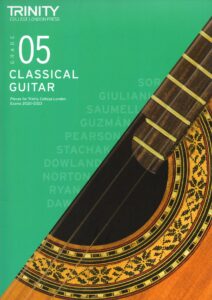 |
|
| Trinity Classical Guitar 2020-2023 Grade 06 |
 |
|
| Trinity Classical Guitar 2020-2023 Grade 08 |
 |
